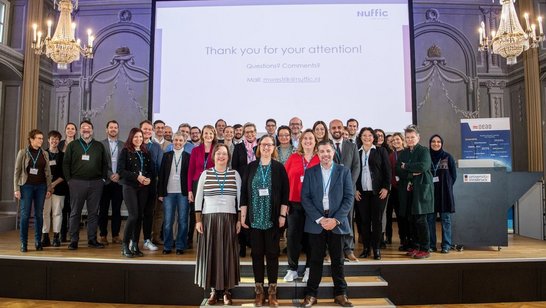
International PLA: Micro-credentials – implementing council recommendation and digital credential frameworks

“We ask the BFUG to explore how and to what extent these smaller, flexible units, including those leading to microcredentials, can be defined, developed, implemented and recognised by our institutions using EHEA tools.”
Rome Communique 2020
Micro-credentials are, according to the MicroBol project and the EU Council Recommendation of June 16, 2022, evidence of learning outcomes that can be achieved in the context of a small learning unit. In practice, exciting approaches to micro-credentials have emerged in recent years, namely in the area of Higher Education Institutions, and here again often as a pilot within the framework of European University Alliances, or as a cooperation between universities and companies, or purely on the part of external providers, as is the case of Malta. Which institution can (and wants to) award micro-credentials, e.g. for the purpose of re- and up-skilling, and what the scope and quality assurance of these micro-credentials is, was deliberately left open. Still, certain cornerstones such as the European standard elements to describe a micro-credential and the European principles for the design and issuance of micro-credentials must be adhered to.
On December 12, 2022, more than 40 representatives of higher education institutions, ministries of science and education and recognition agencies from Ireland, Italy, Malta, Belgium, the Netherlands, Finland, Ukraine, Romania, Poland, Croatia, Austria, as well as participants from European University Alliances presented their views. National practices were exchanged as well as helpful tools in monitoring and implementation, such as the Micro-Evaluator of Nuffic or the potential of the interaction of Micro-credentials and the digital credentials of Europass. "How Micro is Micro" was discussed in detail (the majority of those present were oriented towards a minimum of 3 ECTS credits in order to ensure the qualitative verifiability of learning outcomes), as was the potential of assigning micro-credentials to the NQF - critical voices were expressed in this regard.
The OeAD thanks the University of Innsbruck for their hospitality as well as for the lively exchange - further information on the handling of micro-credentials in Austria by the Federal Ministry of Education, Science and Research can be found here (in German available only).
This event was co-funded by the Austrian Ministry of Education, Science and Research, as well as by the project „INterconnection/INnovation/INclusion: Austrian contributions to the EHEA 2030 – 3-IN-AT-PLUS“ – a KA3-activity of the European Commission. The European Commission support for the production of this publication does not constitute an endorsement of the contents which reflects the views only of the authors, and the Commission cannot be held responsible for any use which may be made of the information contained therein.
